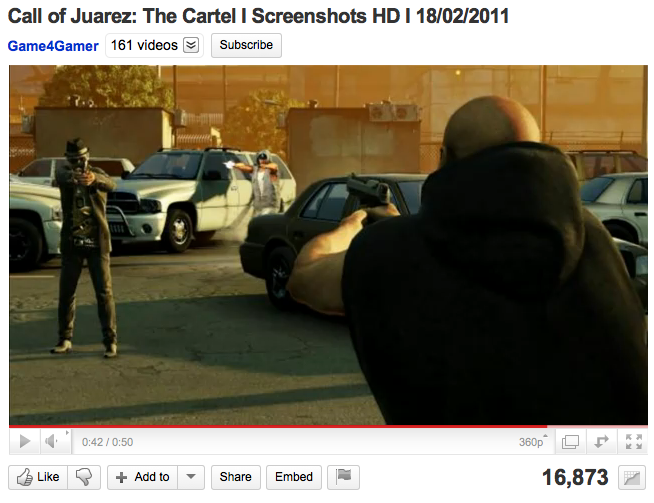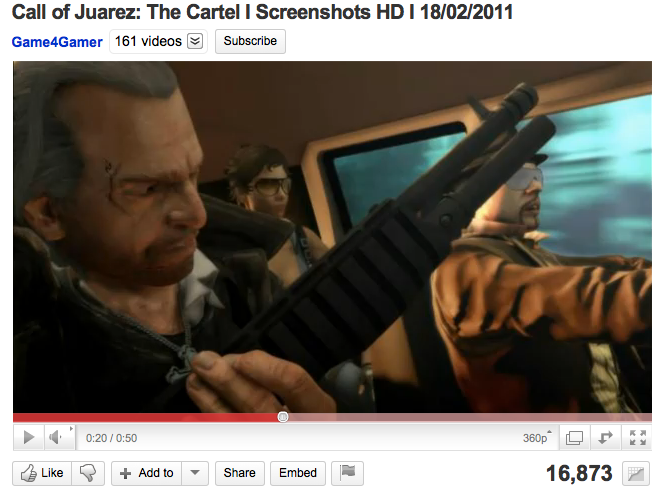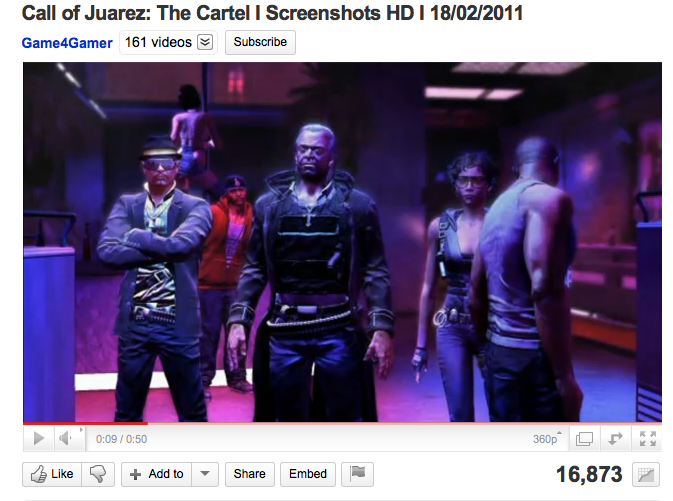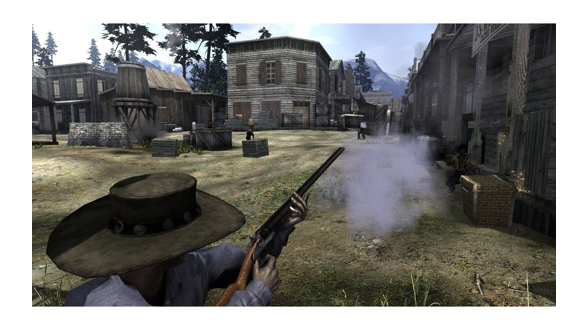
Image credit: screenshot via YouTube
Last week I posted a link to the much discussed Great Gatsby video game that's making the rounds. It's not like me to turn my attention to video games for two weeks in a row--no offense to anyone--but this story on NPR's "Morning Edition" caught my attention. This summer, the French gaming company Ubisoft will release a game they call Call of Juarez: The Cartel. As you might expect, the game is generating a lot of controversy due to the real-life situation of the border city. This news comes on the heels of the bloodiest weekend in recent memory, in which 53 people were killed (as reported by The Houston Chronicle).

Image credit: screenshot via YouTube

Image credit: screenshot via YouTube
It's an understatement to say that Juarez has been in dire straits for a few years now. Sure, I agree with the critics who argue that the game makes light of a terrible situation, but I also wonder if the span and duration of the "war" helps facilitate the decision to make a game such as this. At what point do wars, whether waged by nation-states or gangs, become attractive to those who create games (and, for that matter, films and other forms of representation)?
It's also worth noting that Call of Juarez: The Cartel is the third installment of the series, a point to which many media outlets are not alluding. Two other games, Call of Juarez and Call of Juarez: Bound in Blood, feature the kind of Wild West imagery more familiar to Clint Eastwood fans, as illustrated by these screenshots on amazon.com.

Image credit: screenshot via amazon
It's a provocative link between the more old-fashioned, romanticized violence of the past and the kind that still shocks many in the present. Yet, is it also expected?
Recent comments
2 years 29 weeks ago
2 years 44 weeks ago
2 years 44 weeks ago
2 years 50 weeks ago
3 years 4 weeks ago
3 years 4 weeks ago
3 years 4 weeks ago
3 years 6 weeks ago
3 years 6 weeks ago
3 years 6 weeks ago